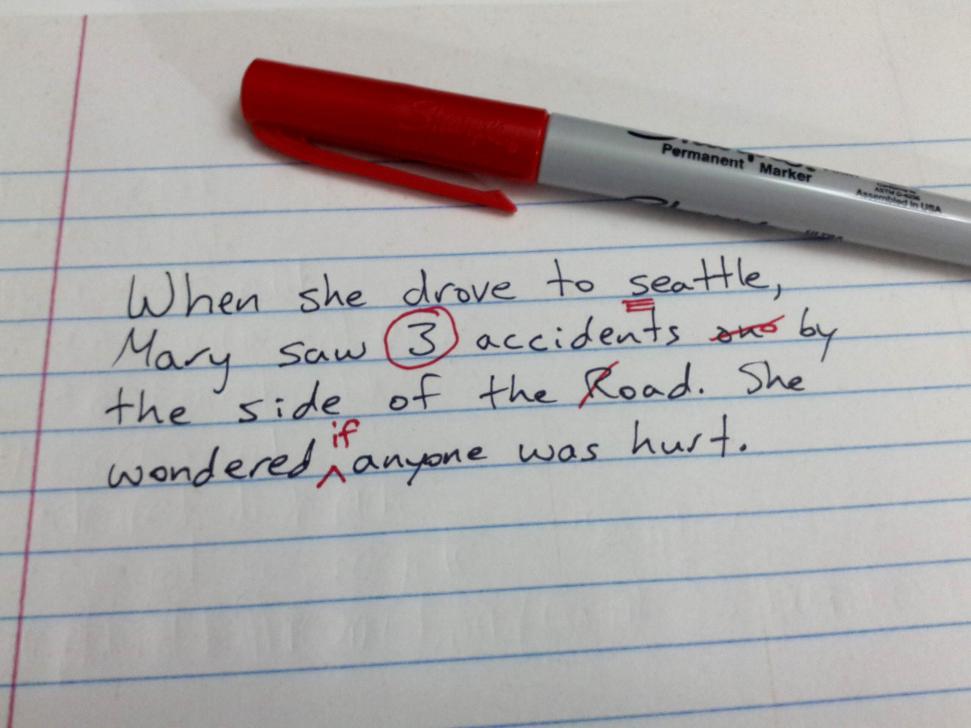|
| |  Dear Member | Guild Gallery December 2014 Get your 2015 diary out and save the date of 18 June for the Summer Conference at the School of African and Oriental Studies in Bloomsbury, London. We can announce our keynote speaker, Professor Amanda Kirby, who has recently published "How to succeed with SpLd at College/ University and in Employment" and will also speak about the development of the DO-IT Profiler. She started The Dyscovery Centre (now part of the University of South Wales), a trans disciplinary centre for children and adults with specific learning difficulties and disabilities. This has been recognised internationally for its work in this field, especially in the area of Developmental Co-ordination Disorder (DCD), also known as dyspraxia. Dr Meesha Warmington of the University of York (along with Professor Maggie Snowling and Dr Sue Stothard), developed and standardised the York Adult Assessment Battery-Revised (YAA-R) to assess dyslexia in higher education. Her current research will be presented at the conference and she examines executive control (i.e., attention, working memory and cognitive flexibility), language and literacy development in bilingual children and adults. For more information please Click Here Dyslexia Review Vol 25 No 3 Autumn Winter 2014 will be published this week and sent out to all with a full membership. A Merry Christmas and Happy New Year to all our members
|
| Upcoming Courses Postgraduate Programme Starts March 2015 book now!  The aim of these online programmes, that run three times a year, is to train teachers and support tutors to become informed, skilled practitioners who understand the theory and practice of teaching and/or assessment of dyslexic learners of all ages (we have three start dates per year in September, January and May). If you would like to undertake full diagnostic assessments, our Postgraduate Diploma Programme is highly recommended and will make you eligible for Assessment Practising Certificate application. |
CPD Programme Short Courses starting 28 January 2015 20-30 hours of study over 6 weeks. (courses also available for March, May and July 2015) Dyslexia Action's Continuing Professional Development Level 4 and 5 online courses have been designed specifically for: Classroom Teachers, Teaching Assistants, Tutors working with those under the age of 18 The Dyslexia Action Level 4 and 5 CPD Programme consists of independent Unit courses, most of which may be taken individually (start dates throughout the year). You can build up these units over time to gain Awards and then a Certificate (two Awards).
Our online courses offer flexible learning to fit around your lifestyle. Dyslexia Action have been awarded with formal CPD acreditation by The CPD Standards Office, Professional Development Consortium.
Supporting Adults Programme 
Start dates 28 January 2015 (courses also available for March, May and July 2015) This programme is suitable for those working with Adults (16+) in any education setting or adult training environment including Adult, Further or Higher Education, Offender units and the workplace. The Dyslexia Action Level 4 Supporting Adults Programme consists of independent Unit courses, most of which may be taken individually (start dates throughout the year). You can build up these units over time to gain an Award. Our units are either 2 Dyslexia Action credits (20 hours of learning time required over a 6 week period) or 3 Dyslexia Action credits (30 hours of learning time required over a 6 week period). To meet the needs of individal learners.
Dyslexia Action International Programme Available for March, May and July 2015 International Courses are designed specifically for practitioners who are based outside of the UK. The Level 4 and Level 5 International Programme courses are designed to strengthen the expertise and confidence of international teachers, teaching assistants and support professionals in order to ensure the progress and achievement of learners with Dyslexia/SpLD from Elementary/ Primary age through to Adult.
In order to participate in the course you should be living outside of the UK and be working with English speaking learners. Our online courses provide flexibility for learning which enables studying to be fitted around your commitments. This programme replaces the former Dyslexia Action Hornsby: Alpha to Omega course.
Specialist Teacher/Assessor Courses include: Diagnostic Report Writing - Online or Attendance courses available in 2015. Click Here Exam Access Arrangements - Online or Attendance courses in February and March . Click Here
News Too much praise lowers standards The Sutton Trust education charity has warned that many strategies used by teachers have no evidence to show that they really work. Too much praise for low achievers can "convey a message of low expectations". Robert Coe of Durham University said teachers needed to know what was "most likely to be effective". The study, What Makes Great Teaching, produced by Prof Coe for the Sutton Trust, drew on more than 200 pieces of research into what works in the classroom. The researchers identified two main factors which are linked to whether pupils' results can be improved - the quality of teaching and teachers' subject knowledge. The "quality of instruction" included "effective questioning" of pupils and a good use of assessment. And it said that teachers with a strong understanding of their specialist subject were particularly likely to have a positive impact on how pupils learn. More details are available from this link below: Read this report Here
|
| Student Loans Company offers tools and Resources for 2015/16 | The Student Loans Company (SLC) have published a new update on their website. The have also outlined their new information page on Gov.uk 'Ask the Expert' films, factsheets, lesson plans and other resources that help explain student finance to your students and their parents. To read the story in full please click here
Conferences12 January 2015 Diagnosis in Educational and Psychological Practices: An interdisciplinar conversation Sheffield, UK 30 January 2015 NASEN Conference: Effective School Leadership London, UK 4 and 17 March 2015 Premier League Reading Stars Cymru Wales, UK 15 April 2015 Dyscalculia in FE/HE Loughborough, UK 18 June 2015 Dyslexia Guild Summer Conference London, UK
Vision for Literacy Up to 40% of the adult population in the UK’s most deprived wards lack the literacy skills expected of an 11-year-old. 19 members and supporters of the National Literacy Forum have developed the Vision for Literacy, which recommends four areas, or Pathways to Literacy, where sustained policy consensus is required to ensure that all children born this year have the literacy skills they need to succeed by the time they finish secondary school. The Vision for Literacy aligns with the Read on. Get on. campaign and Fair Education Alliance and makes four key recommendations to address literacy. For more details click here
Dyslexia AssistA Dyslexia Association as a parent representative body with the aim to raise awareness of and access to helpful resources. A key strength and features of the Dyslexia Assist website is its interactivity. It is written in dyslexic font and has speech-to-text software for use whenever it is needed. As printed words present difficulties for dyslexic children, there are lots of visual and audio aids to help on the website. For instance, to remember the months of the year, there is an article on how you can use your hands and knuckles to prompt memory as well as using familiar tunes and word association as an aid. Also, the website deals with frequently asked questions like: How do I get my child assessed? What will happen in my assessment? How do I cope with tricky words? What should I expect from an assessment? Dyslexia Assist is a no shop, no donation, no affiliation registered charity. “Our idea is to share as much information as we can in one central hub so that both parents and children have somewhere to go.” Click here for the website | | |
| Research News | | | Most Autistic People Have Normal Brain Anatomy  Published in Cerebral Cortex by Israeli researchers Shlomi Haar and colleagues, the new research reports that there are virtually no differences in brain anatomy between people with autism and those without. What makes Haar et al.’s essentially negative claims so powerful is that their study had a huge sample size: they included structural MRI scans from 539 people diagnosed with high-functioning autism spectrum disorder (ASD) and 573 controls. This makes the paper an order of magnitude bigger than a typical structural MRI anatomy study in this field. The age range was 6 to 35. There are hundreds of studies claiming to have found differences in brain structure in autism, many with small sample sizes, and Haar et al’s failure to replicate almost any of these claims, is sobering. It’s important to remember, however, that this paper only considered brain anatomy. It doesn’t contradict studies looking at brain function, nor does it relate to microanatomy or neuropathology (i.e. microscope work.) For more on this story Click Here
|
|
| Study shows reading for pleasure boosts vocabularyReading for pleasure during childhood has a substantial influence on a person's vocabulary 30 years later. Researchers at the Institute of Education (IOE) have reached this conclusion after studying the vocabulary test scores of more than 9,400 British people at the ages of 10, 16 and 42. Their statistical analysis showed that those who had regularly read for pleasure at 10 scored 67 per cent in the age 42 vocabulary test, whereas infrequent childhood readers scored only 51 per cent. Regular readers tended to come from more advantaged families and also had higher vocabulary scores at ages 10 and 16. But even after these factors were taken into account there was still a 9 percentage point gap in vocabulary scores at age 42 between those who were either frequent or infrequent readers in their youth. "The long-term influence of reading for pleasure on vocabulary that we have identified may well be because the frequent childhood readers continued to read throughout their twenties and thirties," say the researchers, Alice Sullivan and Matt Brown. "In other words, they developed 'good' reading habits in childhood and adolescence that they have subsequently benefited from." For more details Click Here
|
Existing Phonics Programmes Fail Disadvantaged University of Cambridge Professor, Usha Goswami, director of the Centre for Neuroscience in Education, said that existing phonics programmes failed to take into account the difficulty that some children had distinguishing individual sounds. She has been awared funding to explore whether poor children could improve their reading skills more rapidly by using a computer game that tests awarenesss of longer sounds within words, which was originally developed to help dyslexic pupils. The computer game, GraphoGame Rime, encourages children to match sounds they hear through headphones with a group of letters they see on a screen, it analyses their answers and provides feedback to teachers. Dr John Rack, director of education and research at Dyslexia Action has commented "We agree it may not be the best way to teach all children - using phonemes may be better. But for those who don't get it we need to be more flexible, and units which are more consistent and easier to distinguish do play a part. We have an intervention programme, and onset and rime work is in that." For more on this story click here
Made a Typo? You must be really smart...  The reason typos get through isn’t because we’re stupid or careless, it’s because what we’re doing is actually very smart, explains psychologist Tom Stafford, who studies typos of the University of Sheffield in the UK. “When you’re writing, you’re trying to convey meaning. It’s a very high level task,” he said. As with all high level tasks, your brain generalizes simple, component parts (like turning letters into words and words into sentences) so it can focus on more complex tasks (like combining sentences into complex ideas). “We don’t catch every detail, we’re not like computers or NSA databases,” said Stafford. “Rather, we take in sensory information and combine it with what we expect, and we extract meaning.” When we’re reading other peoples’ work, this helps us arrive at meaning faster by using less brain power. When we’re proofreading our own work, we know the meaning we want to convey. Because we expect that meaning to be there, it’s easier for us to miss when parts (or all) of it are absent. The reason we don’t see our own typos is because what we see on the screen is competing with the version that exists in our heads. For more on this story click here
The Skills Funding Agency offer guidance The Skills Funding Agency have published a summary of the support available for functional skills and key skills qualifications, taken as part of an apprenticeship. Details are available here
|
| Reading news Writing on the Guardian's online Teacher Networks pages, Sally Dring pleads for teaching staff not to overlook school librarians as they are perfectly placed to help improve students' research skills and digital information literacy. "Teachers are busy enough as it is and often don't have the time to critically assess all the sources of information out there - make use of your friendly school librarian, who is usually more than happy to help out. It's part of our job." CILIP Carnegie and Kate Greenaway Children's Book Awards The Carnegie Medal is awarded annually by the Chartered Institute of Library and Information Professionals (CILIP) for an outstanding book for children and young people, while the Kate Greenaway Medal is awarded for an outstanding book in terms of illustration. The list of eligible nominations for 2015 has been published, so why not involve your pupils in picking their favorites and get your school or local librarian involved to help encourage reading for pleasure. The judging panel will review nominations and decide the official longlists, which will be published on Tuesday 10 February 2015. To find out more, please Click Here
| Technology iPad Apps for learners with dyslexia or writing difficulties If you thinking about purchasing an ipad and need a list of useful applications, this guide is a little old now but still gives a good list of apps divided by type i.e. writing, reading, memory, organisation, numeracy apps that many of you may find helpful. More details here
New Dictionary layout for people with Dyslexia Dr Neville Brown and son Dr Daryl Brown, head at Maple Hayes Dyslexia School, Lichfield, which specialises in teaching children with literacy problems, are launching an alternative version of the dictionary in a bid to make the English language more accessible to those with dyslexia. Now, after almost 25 years analysing the way dyslexics learn, the Browns have rewritten the dictionary after identifying that its layout, which is biased towards phonetic language, proved a huge stumbling block for youngsters with dyslexia. The new version will prioritise the link between words with similar meaning, no matter how they are pronounced, by putting all related words, regardless of the prefixes they use, on the same page instead of scattered throughout the dictionary. Daryl Brown, who is headteacher at Maple Hayes, said: "It is not that the dictionary we all know and love is wrong – it works for many people but, quite simply, is completely inaccessible for dyslexics. "We teach literacy using an entirely different method to phonics, instead using the 'morphological approach' which was developed by my father over 30 years ago. "This bypasses the requirement to learn words by sounding them out – instead using icon meaning cards to visually represent words or parts of words. "The meanings of words will be prevalent in our dictionary. Whilst we believe it will be an invaluable tool for dyslexics, it will also give children and adults without the learning difficulty a greater understanding of the origins of our language, enabling them to grasp the true meanings behind parts of words and make greater sense of a language that we learn verbatim, but never question." The Browns hope to complete the new dictionary by the end of 2015.
Learning at the British LibraryThe British Library offers an exciting programme of workshops, activities and resources for schools, teachers and learners of all ages. Explore fascinating topics online or plan a visit, learn practical ways of developing grammatical knowledge at their CPD conference and book now for 2015 Magna Carta workshops.
Find out more here
Work for Dyslexia Action We are looking for specialist teachers to work in Manchester, Leeds, Nottingham and Coventry. For job opportunities with Dyslexia Action please see our latest vacancies: Click Here For more details about job descriptions or applications contact: recruitment@dyslexiaaction.org.uk
Next Issue The next issue of Guild Gallery will be sent out February 2015.
|
|
|
|
|
|